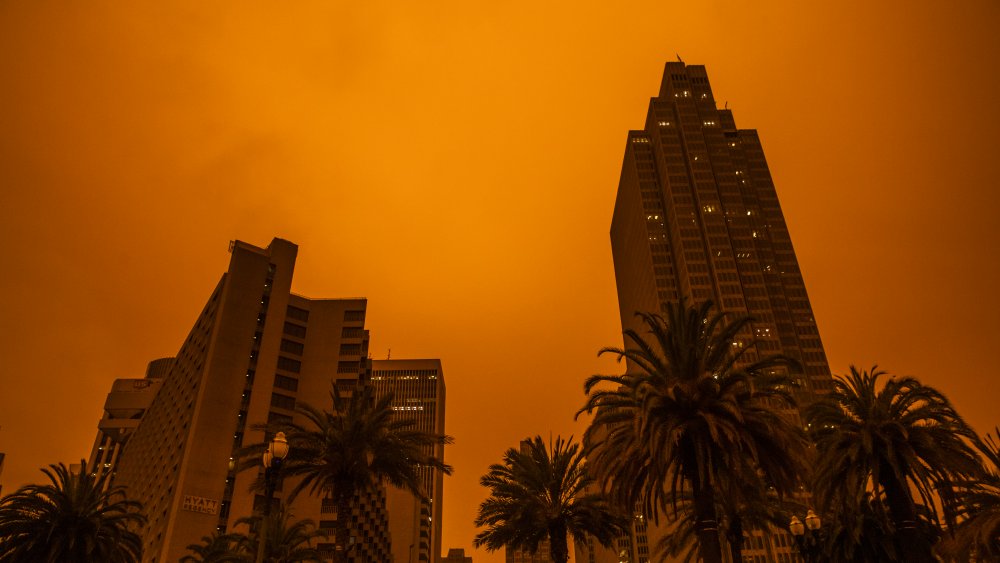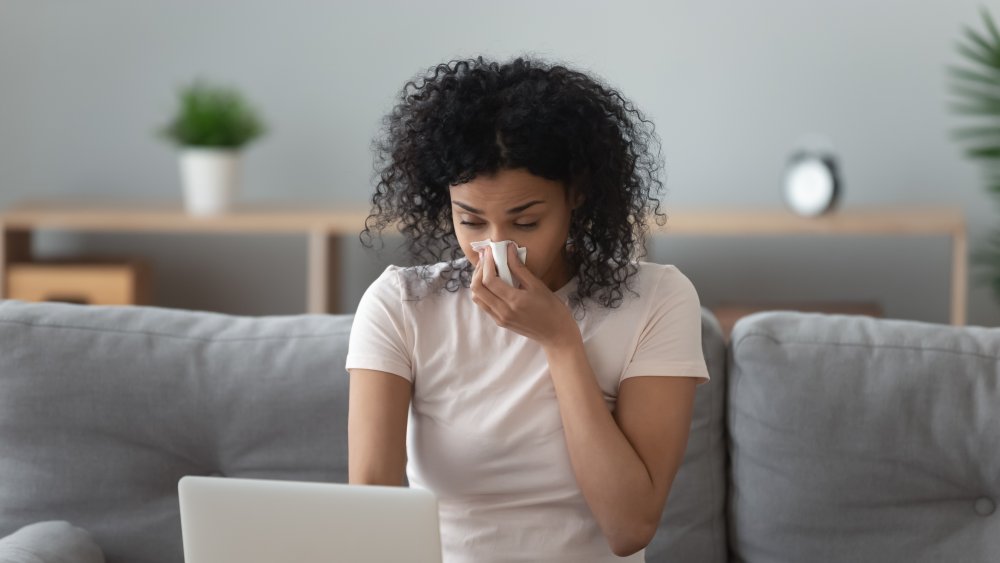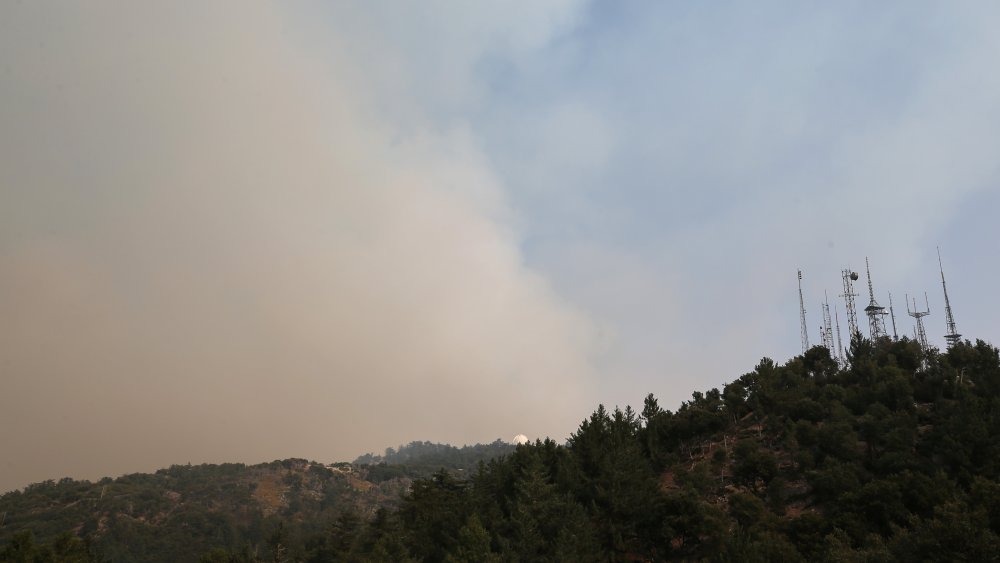What Happens To Your Body When You Breathe In Wildfire Smoke
For several days in September, the skies over San Francisco turned orange due to smoke from Northern California's wildfires, which have been raging since late August. And while the orange glow has disappeared and wildfires are under control in some parts of the western United States, residents will be grappling with the after-effects of smoke exposure for some time to come.
Smoke isn't just a problem for people who live within the proximity of the danger zone. When these wildfires happen, they release thousands of toxic compounds, including carbon monoxide, carbon dioxide, hydrocarbons, and nitrogen oxides (via The Conversation). These particulates are measured in microns (about 50 times smaller than a grain of sand), and because they're so tiny, they can travel for miles in the air. Even worse, exposure to the sun and other elements in the air can make these microns "age" and become more toxic. The smoke has already reached the East Coast, having been detected in New York and Washington, D.C. (via BBC).
Wildfire smoke triggers respiratory problems
Smoke particulates are so tiny that they have the ability to settle into the deepest part of our lungs and trigger inflammation. In the short term, smoke exposure can cause coughing, sore throat, eye irritation, and shortness of breath in people who are otherwise healthy. They can also make symptoms worse for people who have asthma and COPD (chronic obstructive pulmonary disease). Cedars-Sinai director of the Division of Pulmonary and Critical Care Medicine Peter Chen notes: "Unfortunately whenever there's a wildfire, we see a lot of people with chronic respiratory problems whose symptoms get worse" (via Cedars-Sinai).
Wildfire smoke weakens our lungs, which means it can potentially increase the risk of getting lung diseases and respiratory infections, including COVID-19. "We don't know for sure if COVID-19 is going to be worse in the setting of wildfires, but we can speculate that is true," UC San Francisco assistant professor of pulmonology Stephanie Christenson tells The Hill. "[But] If you have inflammation from one thing like wildfires and you get COVID-19 on top of that also causing inflammation, that could compound each other and cause hospitalizations or other bad outcomes."
Long-term effects of breathing wildfire smoke are unknown
While the short- and medium-term effects of wildfire smoke on the body are mostly clear, its longer-term impact on the health of residents exposed to the toxic air still has to be studied. So far, researchers can only say that people who were exposed to wildfires in 2017 have seen their lung capacities decline, even two years after the smoke had cleared (via Los Angeles Times). The scientific team, led by University of Montana immunologist Chris Migliaccio, may be keen do find out more, but they haven't been able to return to the research site at Seely Lake in the Northern Rockies due to COVID-19. The group is anxious to find out whether that damage can be treated, or even reversed with medication and whether smoke exposure can affect other organs.
In somewhat surprising news, medical professionals are particularly concerned about cardiovascular health and wildfire smoke. That's because lung inflammation can affect the entire body, increasing the risk of blood clots, which can then lead to a stroke or heart attack. "The American Heart Association recognizes outdoor particles as an effector for short- and long-term health effects," says John Balmes, a UC San Francisco pulmonologist (via University of California San Francisco).


